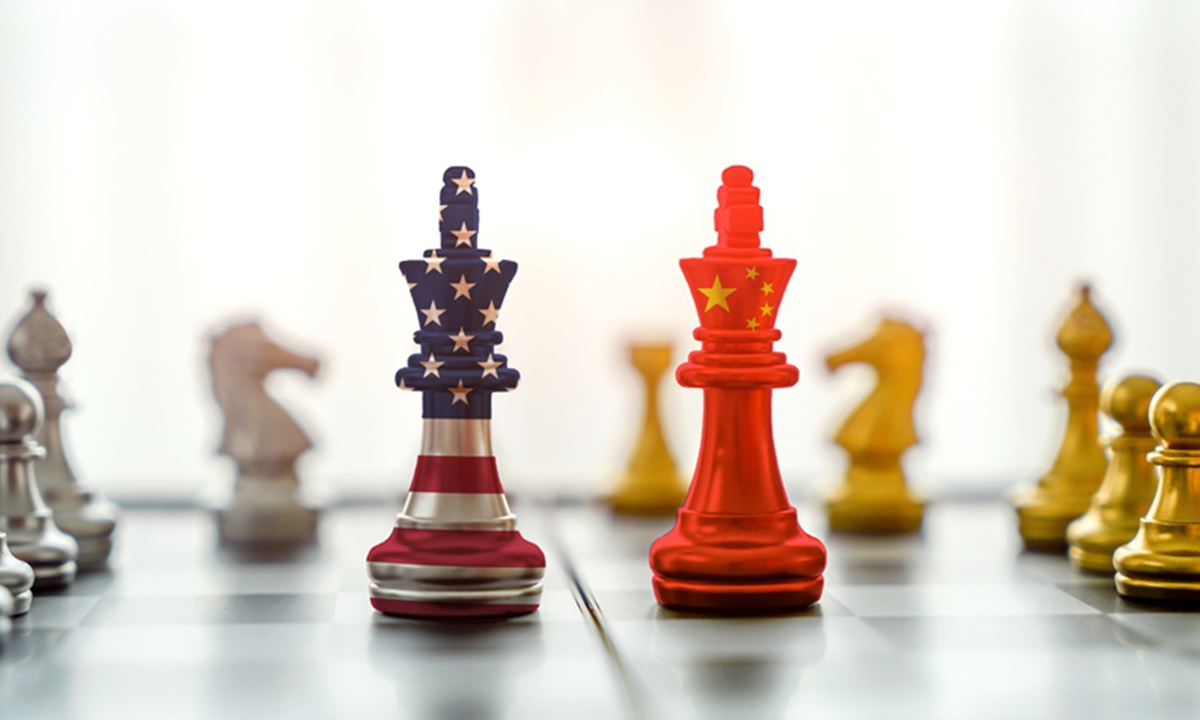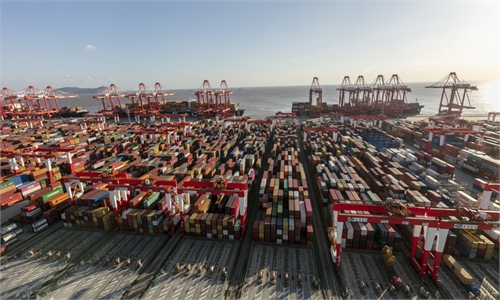
China-US Photo: GT
Over the past 24 hours, two things have happened that have highlighted the completely different attitudes of the US and Chinese governments toward bilateral economic and trade cooperation.During a virtual dialogue with US business leaders on Tuesday, Chinese Premier Li Keqiang said that China welcomes American companies and will further open up Chinese market, and the country will continue to work toward a market-based and law-governed business environment.
On the same day, however, news came that the US Commerce Department issued a subpoena to an unnamed Chinese company, a move media reports described as part of the government's risk assessment of its supply chain. As Washington is reportedly reviewing supply chains for key industries in an attempt to establish a supply chain that excludes China, messages emanating from the US all point to the Biden administration continuing the Trump administration's hardline stance on Chinese technology companies.
These two episodes tell two very different stories about the expectations of each government toward China-US economic and trade cooperation.
On the one hand, even amid the escalating political frictions between China and the US, the Chinese government is still making earnest efforts to send a signal that its willingness to promote bilateral economic and trade cooperation has not changed.
On the other hand, Washington's increasingly ideological aggression has become the biggest obstacle to bilateral economic cooperation.
Washington may believe that containing China's development by cutting Chinese technology companies off US supplies of key components would restore its competitiveness and consolidate its absolute technological dominance in the world, but they are actually threatening to destroy the overall environment for bilateral trade and business exchanges.
Business communities from both countries had hope that the Biden administration, once coming to power, could make a difference from the previous Trump administration in terms of China-related trade policy, changing course to restore market confidence. But to their disappointment, increasing signs suggest that the Biden administration hasn't walked from the policy approach of suppressing and containing China. This is a big blow to the businesses at both ends.
The world has taken notice that the White House has, repeatedly, said that the US does not seek confrontation with China. When answering a press question on how to address US-China tensions, White House Press Secretary Jen Psaki said on Tuesday that the US is engaged with China at a range of levels, and sees its relationship with China as one not of conflict, but of competition.
But when it comes to practical action, the White House has yet to relax its crackdown on China and Chinese technology companies. In the economic sphere alone, nearly all of Washington's recent maneuvers against Chinese businesses, such as the recent subpoena to the Chinese company, does not bode well for business confidence at all.
We have to be very frank that continued confrontation between the world's two largest economies won't do any good to either country. China's market is kept wide open and remaining growing fast, which will always open its arms for global companies, of all countries and regions, to invest and do business and make money. The US government effort to discriminate and crack down on selected businesses is weird and doomed.



